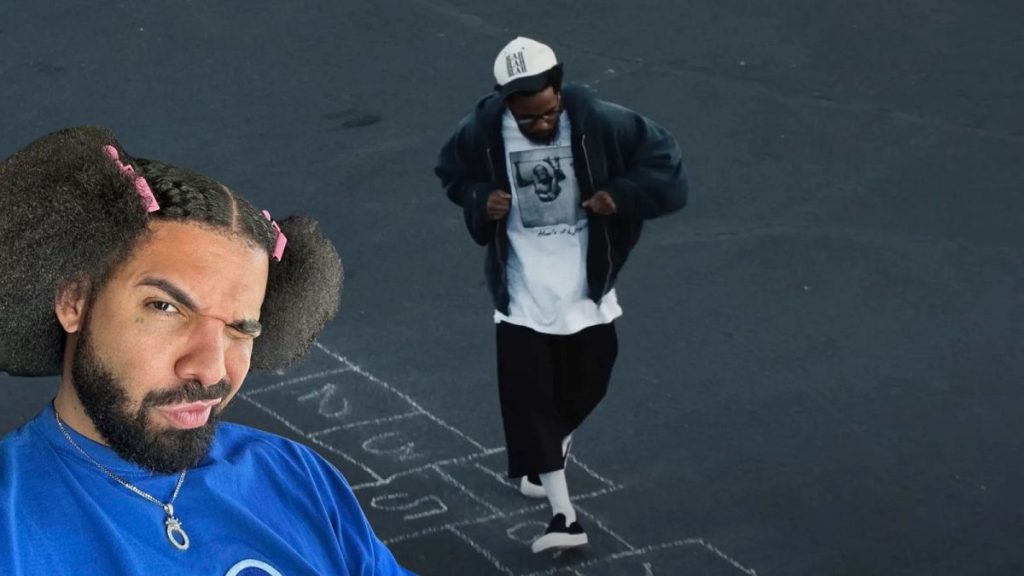In a surprising turn of events within the hip-hop community, Canadian rapper Drake has filed a second legal challenge against Universal Music Group (UMG), centering on alleged defamation tied to Kendrick Lamar’s controversial song “Not Like Us.” This lawsuit, initiated in Texas, follows an earlier filing in New York, where Drake accused UMG of artificially inflating the song’s streaming numbers and improperly enhancing its visibility on platforms such as Spotify. The ongoing legal actions in two states mark an unusual pivot for an artist, diverging from typical hip-hop rivalry norms, where lyrical contests usually dominate over courtroom battles. Such maneuvers have raised eyebrows across the industry, questioning how Drake, a central figure in hip-hop, might be perceived in wake of these lawsuits.
Drake’s legal complaints focus on content from Lamar’s diss track, which is part of an ongoing feud that has intensified between the two artists. The Texas petition alleges that UMG employed “irregular and inappropriate business practices” to promote “Not Like Us,” and furthermore, suggests the label knowingly allowed Lamar’s song to malign Drake by making claims of criminal sexual behavior. The lyrics of the track directly attack Drake’s character, declaring him a “certified pedophile” and insinuating that he should be subjected to monitoring by a neighborhood watch. These potent verses serve to not only escalate the existing rivalry between the two rappers but also inadvertently stress the degree to which an artist’s reputation can be put at risk in the competitive landscape of hip-hop.
As part of the legal proceedings, Drake is pushing for depositions from corporate representatives of both UMG and iHeartMedia, the latter of which is based in San Antonio and allegedly received illegal payments to boost the song’s airplay. UMG has publicly rebuffed the claims, asserting its commitment to ethical practices and defending its marketing strategies. They maintain that the assertion of undermining their own artists is insensible and unfounded, painting the legal discontent as a product of Drake’s misunderstanding of the competitive rap music environment. This defense from UMG starkly contrasts with Drake’s assertions and positions him in a more vulnerable spotlight.
“Not Like Us,” released in May, has experienced remarkable commercial success, garnering over 900 million streams on Spotify and multiple Grammy nominations, including Record of the Year and Song of the Year. In a notable twist, Drake himself did not receive any nominations for the Grammys this year, further intensifying public scrutiny of his positions. Critics and fans alike have taken to social media to question the timing of his two lawsuits and his apparent strategy in handling rap disputes, suggesting that resorting to litigation significantly undermines the credibility of his response to Lamar’s barbs.
The legal strategies adopted by Drake not only illustrate the significant stakes involved in modern hip-hop rivalries but also underscore the troubling intersection of artistry and commerce within the music industry. The criticisms about his approach indicate a possible shift in how rap battles might be perceived in the future, especially considering the rising importance of streaming figures and commercial performance in evaluating an artist’s success and credibility. As legal proceedings in both Texas and New York unfold, the ramifications could extend beyond individual reputations and into larger discussions about the pressures artists face within the competitive and often cutthroat music industry.
At the present, both UMG and Kendrick Lamar have yet to respond to the ongoing legal filings, but the implications of this confrontation are significant. This unexpected situation may redefine not only how rivalries in hip-hop play out in the 21st century but might also set precedent regarding how disputes can be handled when resulting damage to reputation is perceived. As the feud escalates, observers contemplate the future of these artists and what such legal engagements mean for the essence of hip-hop, where the artform thrives on verbal confrontation and expression, rather than courtroom theatrics. This case continues to unfold, leaving the music world watching closely to see how it affects the reputations and careers of two of its biggest icons.














